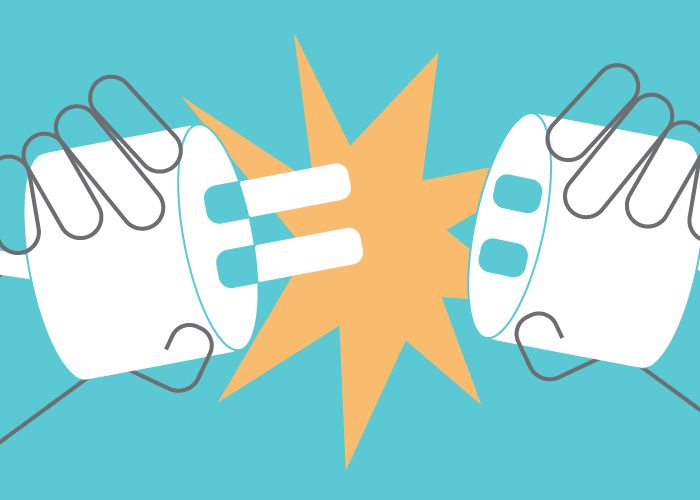

Tips for Veterinarians to Achieve Financial Stability and Flourish Mentally
There are many self-help books, podcasts, TED talks, TikToks, and YouTube videos on finances, but you may still not know how to handle money, how to achieve financial well-being, or how finances can affect your overall health and happiness. This is often a result of school systems rarely teaching financial basics, such as how to make a budget or invest. Additionally, many veterinarians are so busy getting into and graduating from veterinary school that they don't have the time to prioritize their finances. As a veterinary student, you may have accumulated student loans or other debt without considering how this affects your future finances.
The truth is, the way you think and feel about money as well as the state of your personal finances can dramatically affect your mental health, safety, and happiness. If you're motivated to improve your own quality of life and mental health, attaining financial literacy and financial well-being is necessary.
What Is Financial Well-Being?
Financial well-being is a relative measure of how well you manage your finances. It's improved by practicing better money habits, setting financial goals, and taking actionable steps to achieve them—all with the purpose of improving your overall quality of life.
Start With Your Money Mindset
Finances start with your mindset—what you believe about money. Usually, you get these beliefs from your formative caregivers. If your parents thought there was never enough money and that money doesn't grow on trees, you likely hold those same beliefs. These beliefs drive your actions, which create money habits, impacting your life and your experiences with money. Negative beliefs about money often result in life experiences with not enough money and too much debt, which add stress.
On the other hand, having an abundant money mindset and a more positive outlook on money can help you honor and value what you already have. It can help you remember that you already have many things money can't buy, including purpose, personal fulfillment, and love. Your experiences with money begin in your mind, so create and maintain a productive money mindset that will support you and your financial well-being.
Know Your Financial Baseline
Once you've managed your mindset, it's time to do the work. Many veterinary professionals experience feelings of financial insecurity and additional stress as a result because they don't know how much money they need to survive each month. So, determine your financial baseline and budget—how much money do you need each month to meet your basic needs?
These needs might include housing, food, transportation, insurance, phone, Wi-Fi, etc. List your basic needs, put a dollar figure next to each, and add them up. This sum is the minimum amount of after-tax money you need each month to survive. Knowing this amount can help you feel better about hitting this number. Anything you earn above this number can be used for investing, saving, reducing debt, and having fun.
Take an Honest Inventory
Once you have a budget, decide what can be modified or eliminated to give you better financial peace. Maybe you can eliminate streaming services you aren't using. Maybe you can eat out less and save money by cooking more meals at home.
Challenge yourself to look at your budget and identify one luxury you could let go of that would allow you to feel less stressed and provide you with more peace and financial opportunities.
Reduce Your Debt in a Way That Works for You
If you subscribe to the school of Dave Ramsey, then you know about radical debt reduction strategies and snowballing. Snowballing is when you aggressively pay off your smallest amount of debt first while making minimum payments on other debt. After you pay off the smallest amount of debt, you "snowball" the amount you were paying up to the next smallest amount of debt and make larger payments to eliminate that debt. I used this method and it does work to reduce debt. However, I found that as I was ruthlessly erasing debt, I wasn't having any fun and I was pretty unhappy.
While debt reduction is critical to financial well-being, it isn't the end all be all. Debt reduction in moderation can be more manageable and better for your overall mental health, especially if it allows you to give yourself a break. Don't use all your extra money to pay off debt if you don't need to. I recommend reserving 5% to 10% of your monthly income as a personal tithe to yourself that you use on self-care, to be generous, invest, and enjoy your life.
Follow the 50/30/20 Rule
Many people achieve financial well-being by using the 50/30/20 rule:
- 50% of your income goes to basic living expenses.
- 30% of your income goes to fun.
- 20% of your income goes to savings, debt reduction, and investments.
If, like many veterinarians, you carry a high student debt load, you can switch the 30/20 income allocations to fast-track debt reduction and use 20% of the money for fun (travel, eating out, subscriptions, entertainment, hobbies).
Expand Your Financial Horizons
If you're interested in improving your financial literacy, try these books:
- Money Magic: An Economist's Secrets to More Money, Less Risk, and a Better Life by Laurence J. Kotlikoff
- This Is the Year I Put My Financial Life in Order by John Schwartz
- The Little Book of Common-Sense Investing: The Only Way to Guarantee Your Fair Share of Stock Market Returns by John Bogle
If you're a veterinary student, you can also join the Veterinary Business Management Association. Here, you can learn from experts and mentors in finance and business.
Veterinary professionals can also consider hiring a veterinary-specific financial planner that can help you curate your own financial well-being.
It's important to realize that financial well-being is a journey. Even if you aren't currently in a great place financially, the steps you take today will start you on a path to financial well-being. Future you will thank present-day you for taking the steps to get you there. Achieving financial well-being takes patience, commitment, and self-discipline, but remember that your peace of mind and mental health, as well as that of your loved ones, are worth your efforts.







